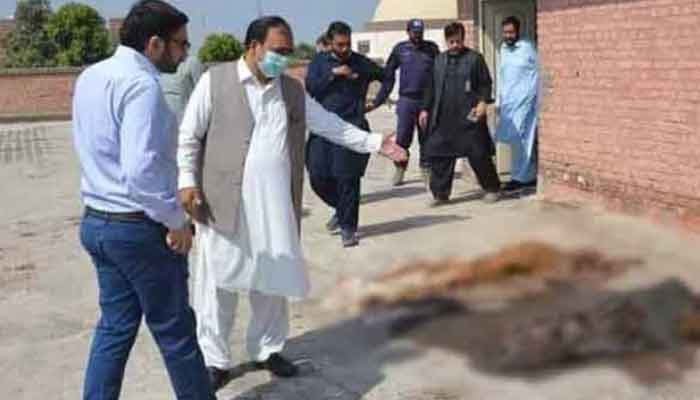Deputy Prime Minister and Foreign Minister Ishaq Dar urged the Afghan interim government to act against terrorism, calling for concrete and verifiable steps to ensure Afghan soil is not used against neighboring countries, particularly Pakistan. His remarks came during the Inaugural Meeting of the OIC Contact Group on Afghanistan, where he outlined Pakistan’s deep concerns regarding the presence of over two dozen terrorist groups operating inside Afghanistan.
Ishaq Dar Urges Afghan Interim Government to Act Against Terrorism at OIC Forum
Speaking at the OIC forum, Ishaq Dar highlighted terrorist groups such as the Tehreek-e-Taliban Pakistan (TTP), Baloch Liberation Army (BLA), Majeed Brigade, and East Turkestan Islamic Movement (ETIM). He emphasized that these groups maintain close collaboration with Al-Qaeda, posing a grave threat to regional and global security.
Pakistan has been facing an alarming increase in cross-border attacks since the Taliban took control of Afghanistan in 2021. Provinces bordering Afghanistan, including Khyber Pakhtunkhwa and Balochistan, have borne the brunt of this violence. The two countries share a 2,500-kilometer-long porous border, making it difficult to stop the movement of armed groups and highlighting the urgent need for coordinated action.
Rising Security Concerns for Pakistan
According to Ishaq Dar, terrorist organizations based in Afghanistan have intensified their operations using digital platforms and social media for propaganda and recruitment. He stressed that such exploitation of technology for violent purposes cannot be tolerated under any circumstances.
His statement reflects a larger regional concern. A United Nations Security Council (UNSC) report recently confirmed links between the Afghan interim authorities and TTP, pointing to logistical, operational, and even financial support being extended to the group. These revelations add weight to Islamabad’s repeated warnings about threats emanating from Afghan soil.
Statement by the Deputy Prime Minister/Foreign Minister at the Inaugural Meeting of the OIC Contact Group on Afghanistan
— Ministry of Foreign Affairs – Pakistan (@ForeignOfficePk) September 24, 2025
🔗⬇️https://t.co/ALHjhCh8RE pic.twitter.com/9Sw5frmF5V
Pakistan’s Sacrifices Against Terrorism
During his address, Ishaq Dar reminded the international community that Pakistan continues to make immense sacrifices in the fight against terrorism. Earlier in September, 12 Pakistani soldiers were martyred while combating TTP infiltrators along the border. These repeated tragedies underscore the urgency of holding the Afghan interim government accountable for preventing terrorist activities.
He stressed that no country wishes for stability in Afghanistan more than Pakistan, given the interconnected destinies of both nations. Dar’s remarks made clear that lasting peace in Pakistan is inseparable from peace in Afghanistan.
A Six-Point Roadmap for OIC on Afghanistan
Ishaq Dar urged the OIC to remain actively engaged with Afghanistan and avoid sidelining the country amid shifting global priorities. He proposed a six-point roadmap for OIC member states to support Afghanistan:
- Secure humanitarian funding from global donors without political bias.
- Stabilize the Afghan economy and banking system to enable trade and connectivity projects.
- Encourage dialogue with the Taliban to ensure compliance with international obligations.
- Support UN-led programs providing alternative livelihoods for ex-poppy farmers.
- Advocate for women’s rights, urging the Taliban to lift restrictions on women and girls that contradict Islamic principles.
- Create conditions for safe refugee return, ensuring repatriation and reintegration of Afghan refugees.
This roadmap reflects Islamabad’s commitment to a peaceful and prosperous Afghanistan, but also underscores that success requires “mutual respect, sincerity, and political will” from the Afghan interim authorities.
Regional and Global Implications
The call by Ishaq Dar urging the Afghan interim government to act against terrorism is not only a bilateral concern but also a regional and international one. Terrorist groups operating in Afghanistan threaten the stability of Central Asia, China, and the Middle East. The continued use of Afghan territory for militant operations could further isolate Afghanistan globally and hinder its economic recovery.
Dar’s warning comes at a time when Afghanistan is already struggling with sanctions, unemployment, poverty, and a fragile political system still unrecognized by most of the world. Addressing terrorism is therefore critical for Afghanistan’s reintegration into the global community.
Pakistan’s Balanced Approach
While Ishaq Dar called out Afghanistan’s shortcomings in combating terrorism, he also reiterated Pakistan’s readiness to support Afghanistan in overcoming its crises. Pakistan’s stance reflects a balanced approach: firm on security demands, yet supportive of humanitarian and economic initiatives to help stabilize Afghanistan.
He also proposed the creation of an OIC working group comprising experts from member states to draft a practical roadmap for Afghanistan’s future. Such a mechanism, if implemented, could align regional interests and provide a platform for constructive engagement with the Afghan interim government.
The message delivered at the OIC meeting was clear: Ishaq Dar urged the Afghan interim government to act against terrorism decisively and responsibly. For Pakistan, the stakes are too high to ignore, with soldiers and civilians paying the price of unchecked militancy. For the region, Afghanistan’s instability poses a threat to peace, trade, and cooperation.
Dar’s six-point proposal offers a roadmap to tackle Afghanistan’s multi-dimensional crises, but its success depends on Kabul’s willingness to confront terrorist groups within its borders. Stability in Afghanistan is not just a national interest for Pakistan; it is essential for the entire region and the wider Muslim world.



